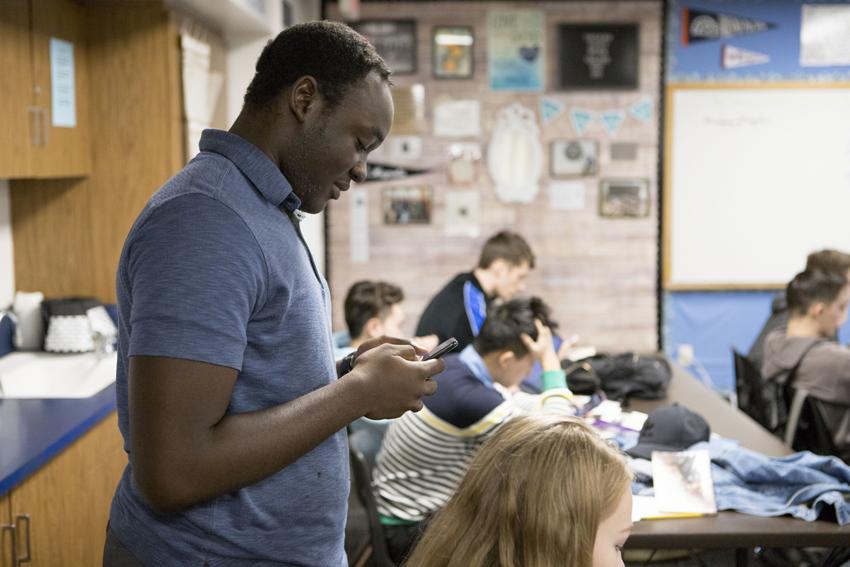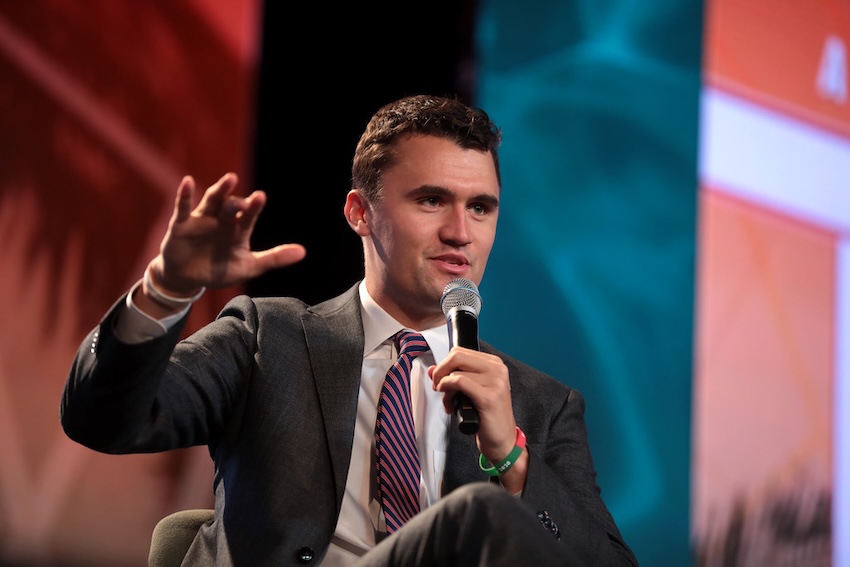Experts believe social media influences democratic proceedings
With news at the touch of a fingertip, it’s become easier for public opinion to spread in journalism. Through the help with technology, it may be the saving grace for democracy. The internet is a key source of news for millions of Americans, both through traditional and new media. Unfortunately as much real news may be pushed out, fake news is around the corner.

Laurene Powell Jobs at The Atlantic or Jeff Bezos at The Washington Post, believes democracy will not die.
“Neither democracy nor journalism will die,” Powell said. “In fact, I suspect we’re about to have way more of both than we’ve had in a while. The path to the next golden age in American journalism isn’t nostalgia for a vanishing past but the same way that led to the previous golden age, namely, that of profit. More than likely, given the new business models, this will mean some partiality from journalism as well. That’s just fine too. It’s what Ben Franklin would have done.”
Sophomore Faith Monray believes social media enhanced spreading big news around. She finds her news mostly on Instagram and Snapchat.
“I normally get my news from ABC 30,” Monroy said. “The local news, or the world news, I like watching David Muir because he’s a good anchor. Social Media has made it easier for us because we always have our phones on us, so we don’t have to rely on reading the newspaper.”
Social media has played an important role of spreading news in the past few years. Through Twitter, Instagram, and even Youtube, the younger generation has left the traditional way of receiving news.
Ro Khanna, US Congress member representing Silicon Valley suspect social media gave people with bad intent to a platform to express their thoughts.
“Undoubtedly, there has been an abuse of these platforms by foreign interference and hate groups,” Khanna said. “Going forward, the platform will only enhance democracy if Facebook leaders make structural changes and adopt rules that will foster speech that is based on facts, reason, and respect.”
FCS history teacher Robert Foshee believes democracy will not die, but the fake controversies social media provides does not help.
“I think finding out news on social media is fake news,” Foshee said. “Since so many people have access to it, and before any story has any facts to it. They could throw out false information. Most of it is to be found out as wrong after a couple days, and people will still think it’s correct. So most of the time I think it causes more trouble.”
Kyler Garza interviews Robert Foshee on saving democracy, and social media’s affect on traditional news.
With a study done at San Diego University it says Only two percent of high school students read the newspaper, and one-third of them haven’t read a book for pleasure in the last year.
“It’s not about whether it’s accurate. It’s about whether or not the story is good for my school’s image. Knowing that schools are supposed to teach democracy and civics, this makes no sense to me.” https://t.co/za9wMLEvut
— Student Press Law Center (@SPLC) February 4, 2019
Steven Pinker, author of Enlightenment Now and professor of psychology at Harvard University, believes social media became a big player of distributing news recently.
“Social media are now being blamed for every problem on the planet,” Pinker said. “From destroying democracy to ruining the younger generation. There’s no doubt that the platforms, like all new technologies, have had negative unintended consequences, and that reforms and countermeasures will be necessary to mitigate them. But the daily diatribes in the mainstream media are so hysterical they offer little insight.”
[media-credit name=”Pew Research Center” align=”alignleft” width=”199″] [/media-credit]
[/media-credit]
“Social media became a new kind of communication space,” Pinker continued. “Then marketplace for its community members, but it also became a new kind battle space that helps determine the
It’s changed the way media businesses operate. It’s provided a platform for bullies and racists and liars. It has disrupted democratic systems and facilitated a global disinformation crisis. The fingers of blame quickly pointed to the great bogeymen of our media age—Facebook and Google—and warned about a threat to democracy.“
Peter W. Singer, author of Like War: The Weaponization of Social Media and a senior fellow at the Brookings Institution.
“Social media has changed the outcome of everything from elections to genocide.” Singer said. “Most importantly, because it is online, it means that the “mirror” is warped. Its reflections are reshaped by everything from our conscious choices of what to post (or not) to the algorithmic and deliberate manipulations that alter not just what we see in our feeds, but what we think about the real world.”
Franklin D. Roosevelt thoughts on how democracy will thrive and succeed is education, the only way people will know the truth is if they look for it.
“Democracy cannot succeed unless those who express their choice are prepared to choose wisely,” Roosevelt said. “The real safeguard of democracy, therefore, is education.”
According to ABC30’s assistant news director Jim Jakobs and TV news producer April Ghan using social media as a news source “limits your world”. Since the younger generation becomes quickly distracted they use new forms of technic by bullet points for easy-quick information for the reader.
For more articles, read COLUMN: Everyday Journalism and SPLC declares 2019 “Year of the Student Journalist”.
Kyler Garza can be reached via email.





Bryson Graham • Feb 22, 2019 at 11:55 am
Good article Kyler!